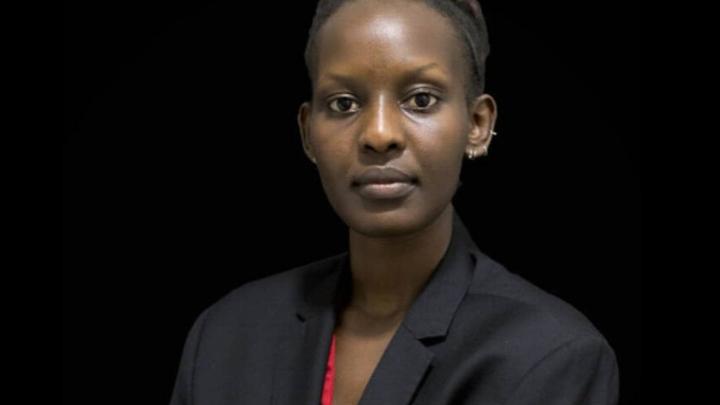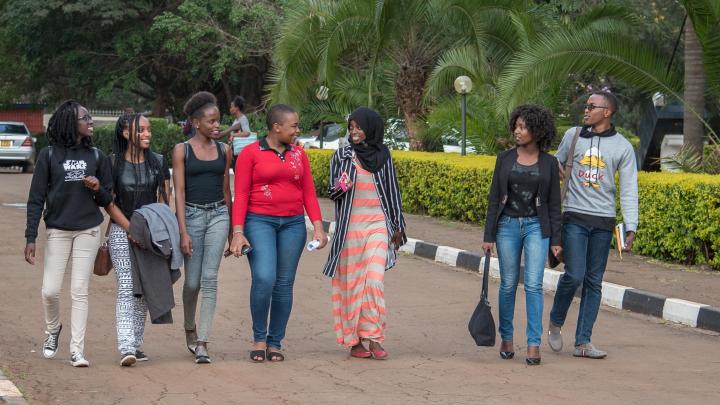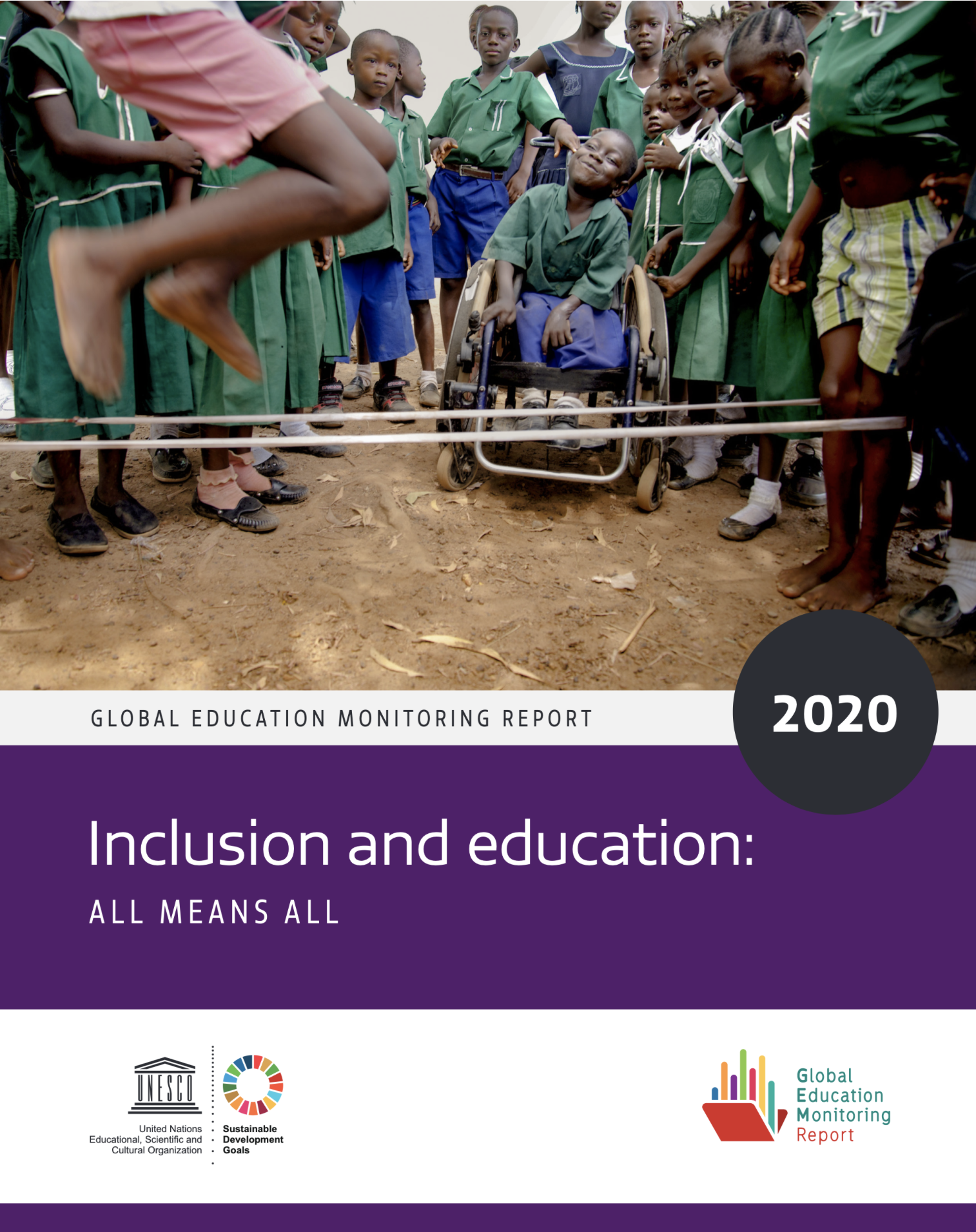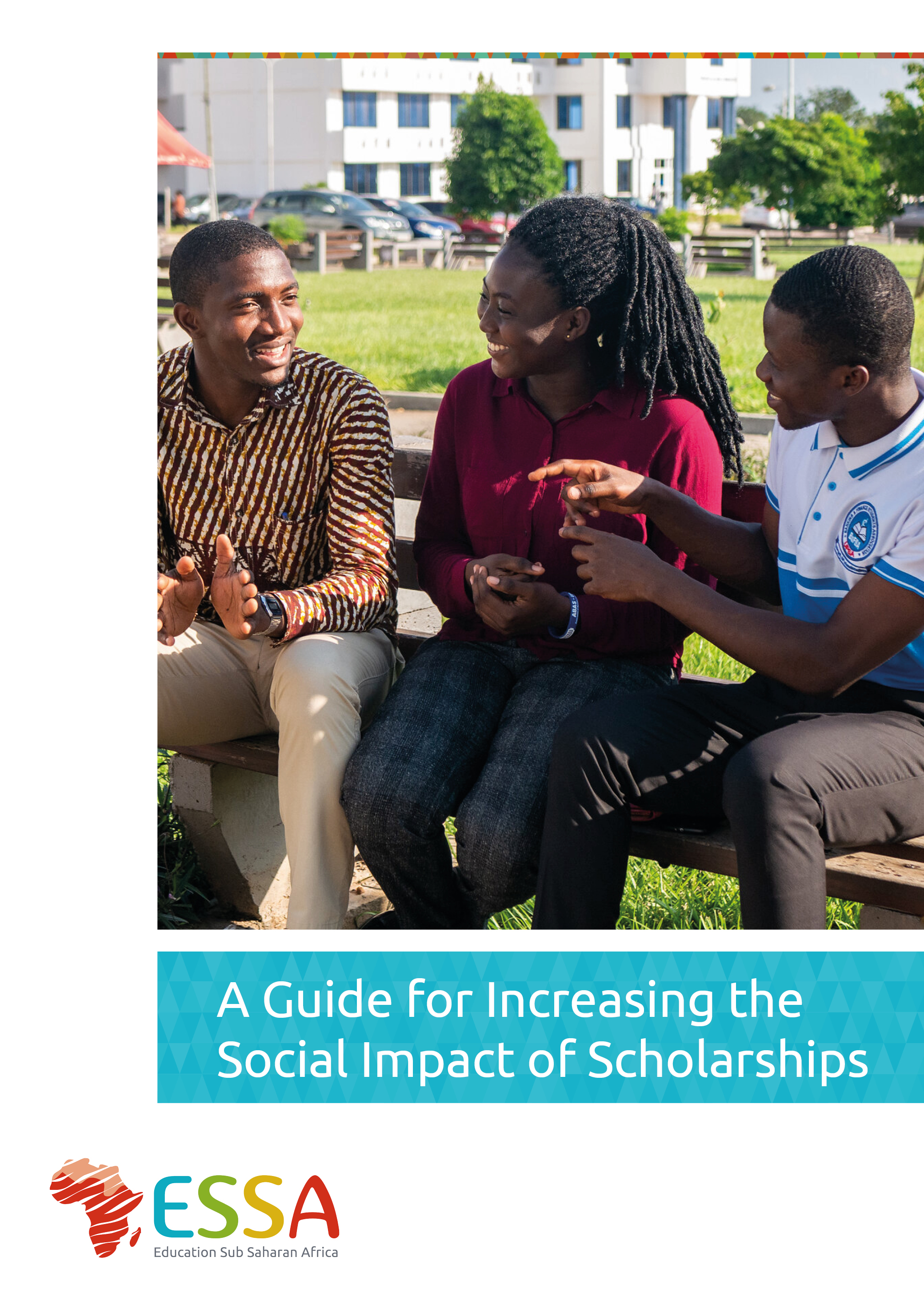Scholarship Impact

Scholarship Impact
SCHOLARSHIPS changing the GAME FOR YOUNG PEOPLE
Millions of people on the world's youngest continent are at risk of missing out on education and getting decent jobs.
University and college scholarships are on the rise. They must change dramatically to become inclusive, focused on impact, and reach enough young people to help solve this challenge.
In the wake of COVID-19, the situation is ever more urgent.
We studied over 400 of the top scholarship programmes around the world, for students from sub-Saharan Africa. Our findings uncovered some of the biggest problems such as high student drop-out rates, high risks of fraud, limited support for students to find jobs, and limited access for students who need scholarships the most.
Our research features in UNESCO’s 2020 Global Education Monitoring (GEM) report, on Inclusion and Education, as the official monitoring of the Sustainable Development Goal 4.b on scholarships.
To change the game for young people, we are bringing together students, universities, scholarship funders and providers. Together, we aim to solve the challenge of limited data, track impact, and improve young people’s access to higher education and employment.
What’s the impact of scholarships for young people?
Costing $750 million annually, there is limited tracking of how scholarships are transforming young people’s lives and societies across sub-Saharan Africa.
59% of the regions 20 – 24 year olds will hold a secondary education qualification by 2030, compared with just 42% now. This represents an extra 40 million young people potentially prepared for Higher Education.
Scholarships must dramatically change if they are to meet this demand. They must be completely re-imagined if they are to reach some of the 20% of most disadvantaged young people, when currently almost none attend post-secondary education.
What we found
-
Scholarships reached the equivalent of 0.4% of the 8.1 million sub-Saharan African tertiary education students.
-
94% of total scholarships for young people in sub-Saharan Africa are being offered by the top 50 providers.
-
The Chinese Government is the largest provider of scholarships, offering 43% of total scholarships for students in sub-Saharan Africa annually.
Our research into these scholarships included contacting the top 50 providers to look at their models in detail: identifying their key success factors from scholarship selection, to graduation and beyond.
We found that
-
30,000 scholarships were offered to students in sub-Saharan Africa by the top 50 providers in 2020.
-
Foundations and corporations make up only a minority of scholarships but exemplify much of the best practice and innovation in the space, particularly for inclusion.
-
Undergraduate scholarships accounted for 56%.
"It is time, in my view, for corporates to shift from corporate responsibility, public relations driven objectives and budget-based thinking for their scholarship programmes, to more commercial and ROI based thinking, which focuses on talent acquisition and diversity as well as measuring impact."
Patrick Dunne, ESSA Chair, Chair of the EY Foundation, Boardelta and a Trustee of the Chartered Management Institute
It’s time for a collective response
We have created a framework and guide to help scholarship providers and funders to measure the impact of their scholarship programmes, promote transparency and lead to problem solving.
Download 'A Guide for Increasing the Social Impact of Scholarships'
We trialled this framework anonymously with 20 scholarship providers that showed good practice in scholarship programming. Now we have evidenced recommendations for what must happen next.
We have further detail on this framework, and it can be tailored for specific programmes. For more information please email:
-
Inclusive scholarships require careful planning and well researched strategies
Most of the 20 providers could not provide detailed background information, e.g. whether recipients had rural backgrounds or a disability.
-
General calls for applications often fail to reach students at risk of exclusion
A cost-effective alternative is to build long-term relationships with trusted local organizations that can play a role in nominating and interviewing marginalized students.
-
Marginalized students, including female applicants, need tailored programmes
To support their university experience, including orientation, study and life skills training, mentoring and pastoral support, workplace preparation and psychosocial support.
-
Graduates’ pathways to work opportunities should be tracked and supported
Refining planning and modelling to improve employment outcomes. The Regional Universities Forum for Capacity Building in Agriculture, a pan-African organization offering students from rural communities postgraduate scholarships at local universities, closely aligned degrees with agricultural opportunities in students’ communities, resulting in 75% of graduates finding decent work in the formal sector or as entrepreneurs.
-
Scholarship providers often operate in isolation
There must be a culture of cooperation and platforms to facilitate coordination.
"My university encouraged us to think about how we can make Africa better. Knowing who you are, where you come from, and what you can do makes you want to do more. I don’t just want to support Africa from my own region, but through working together the impact will be greater."
Fionah Umulisa interned with ESSA while studying for her undergraduate degree at the Africa Leadership University in Mauritius, on a full scholarship.
Changing the discourse together
It is time for governments to better match their funding to the strategic priorities of countries they want to support. It’s time for foundations and universities to work and learn together about how to increase the return on investment of their scholarship spending.
To foster collaboration for change, we are joining-up students, universities, and the most influential scholarship funders and providers to work together.
We will agree on goals and a common framework for scholarships, share evidence and best practice models. A new focus must be on the whole student journey from pre-application, through university and into decent work across sub-Saharan Africa.
Finding better and formalised ways of working between universities, scholarships providers, students and employers is vital if we are to increase the impact of scholarships in society: improving young people’s access to higher education and employment.
If you would like to find out more or join us in this mission, get in touch:
Scholarship Stories
Fionah Umulis, former ESSA intern and scholarships student, Sepiso Dean Mwamelo, current intern at ESSA working on social inclusion within scholarships, and Ranjit Majumdar, a consultant who worked on our Scholarship Programme producing the research, tell their stories about social inclusion and within scholarships.
PARTNERS

The Schaufler Foundation aims to combine entrepreneurship with science, research, education, and the arts.
In the field of education, the foundation supports a variety of universities in Germany. It collaborated with ESSA to expand its activities into Africa. The Schaufler Foundation contributed significantly to ESSA's Pilot Scholarship Impact Hub project.






